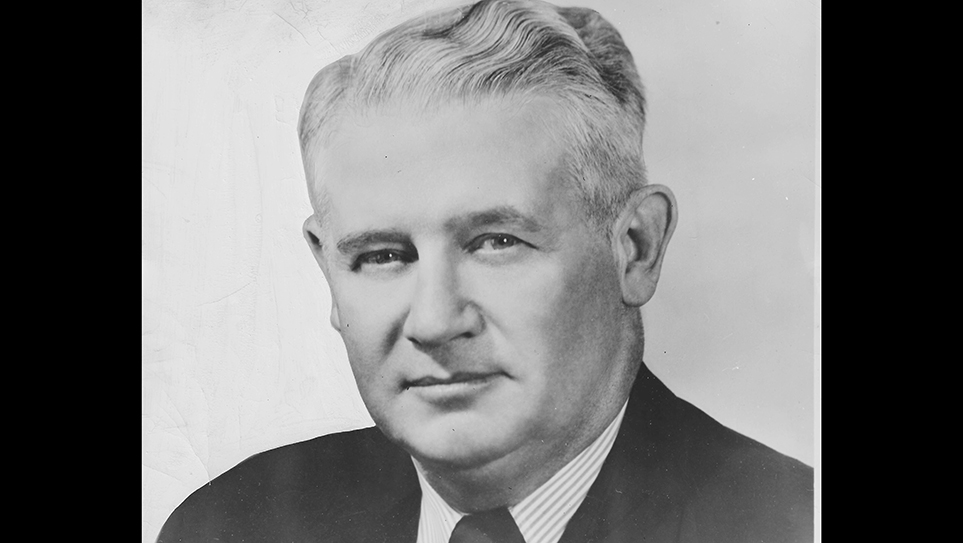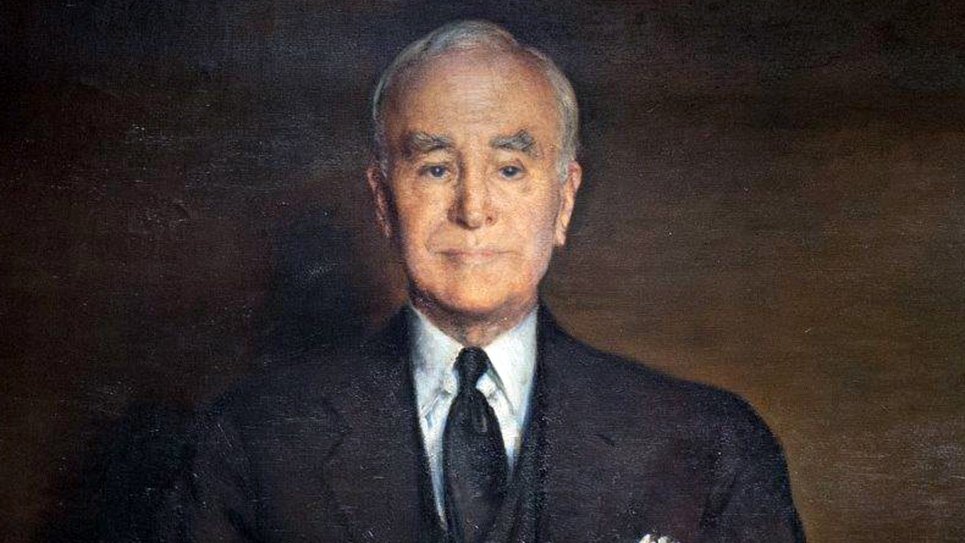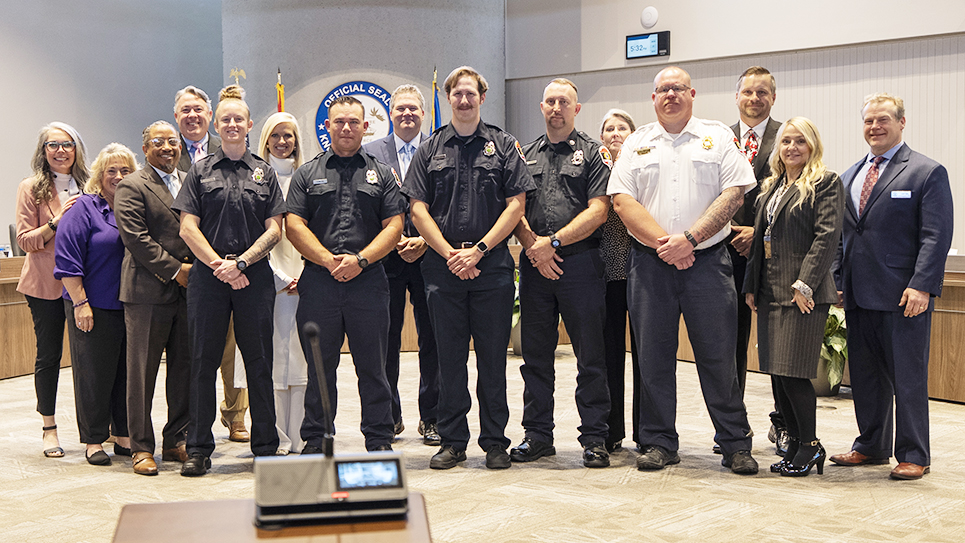A Senate Tragedy: The Death of Lester Hunt
By Ray Hill
It is not highly unusual for political contests to bring out the absolute worst in an individual or individuals. Perhaps it is not as omnipresent as much as many cynical members of the public suspect, but nonetheless, it exists. There are incidences of such behavior still, even locally. The most notable case in history is that of Lester C. Hunt. Hunt was a former two-term governor of Wyoming and a United States senator. Senator Hunt was at the center of an intense internecine battle that involved control of the United States Senate.
Allen Drury, the author of perhaps the penultimate political novel about the United States Senate, “Advise & Consent,” was a young reporter working for the Associated Press. Drury wrote of Lester Hunt, describing the Wyoming solon as “60-ish, dumpy, always smiling, always humorous, outwardly serene, but obviously [a] host to hidden demons.” Time would prove Allen Drury was a shrewd judge of character.
Like much of the rest of the country, the Great Depression colored the politics of Wyoming. Some historians claim the Equality State was normally Republican, but if so, it had a habit of electing Democrats. John B. Kendrick was governor of Wyoming and elected to the United States Senate in 1916 and remained there until his death November 3, 1933. Wyoming’s other Senate seat was occupied by Republicans, including Francis E. Warren who was a long-serving senator and the father-in-law of General John J. Pershing. Joseph C. O’Mahoney was appointed to fill the vacancy caused by Senator Kendrick’s death and he served in the Senate from 1933-1953 when he lost to GOP Governor Frank Barrett.
Lester Callaway Hunt was a dentist who had been born in Illinois and moved to Lander, Wyoming, to engage in his chosen profession. When America entered the First World War, Hunt joined the U.S. Army’s Dental Corps and left the service as a lieutenant. Before returning home to Lander, Lester Hunt did some post-graduate work at Northwestern University. By 1924, Hunt was respected inside his profession and prominent enough to be appointed to serve on Wyoming’s Board of Dental Examiners.
Lester Hunt’s political career began with his election to the Wyoming House of Representatives in 1932, the year Franklin D. Roosevelt headed the Democratic ticket and swept Herbert Hoover out of the White House. In 1934, Hunt was elected to statewide office, winning a contest to serve as the Wyoming Secretary of State. Lester Hunt was popular with Wyoming voters and was reelected to another four-year term in 1938. Hunt was the near-unanimous choice of Wyoming Democrats to be their gubernatorial nominee against incumbent Governor Nels H. Smith in 1942. The 1942 election did not go well for Democrats across the country and Wyoming voters tossed out U.S. Senator Harry Schwartz for wealthy Republican rancher Edward V. Robertson by a majority of almost 7,000 votes. At the same time, Lester Hunt was demonstrating his personal appeal by beating Governor Smith by 2,000 votes.
1946 was an even better year for Republicans nationally, as the GOP captured both Houses of Congress, but in Wyoming, Governor Lester Hunt and Senator Joseph O’Mahoney both won reelection.
As the 1948 election approached, Governor Hunt was the logical candidate to challenge Senator Edward V. Robertson. Robertson, a native of Wales in Great Britain, had been the owner of the famed HooDoo Ranch in Wyoming. Senator Robertson still spoke with a discernable accent and was a through-going conservative. Lester Hunt, with two years left remaining on his gubernatorial term, challenged Robertson in the general election. While 1942 and 1946 had been good years for Republicans, 1948 proved to be an unexpectedly terrible year for GOP candidates. Presidential nominee Thomas E. Dewey campaigned as the heavy favorite in the general election against President Harry Truman. The national news media fully expected that Dewey would carry a continued Republican majority with him. Truman campaigned against the Republican Congress shrewdly, while Dewey tried not to say much of anything. Even with Republicans favored in many races, most political observers believed Senator E. V. Robertson was an endangered incumbent due to Lester Hunt’s personal popularity in Wyoming. Virtually nobody was surprised when Hunt won the general election with 57% of the ballots cast. TIME magazine described the contest between Hunt and Senator Robertson as “an out-and-out popularity contest.” The most widely read news magazine of the age, TIME noted Hunt was “a good rider, good shot, and terrific campaigner.”
The 56-year-old governor resigned his office and left for Washington, D.C., to take the oath of office to serve as a senator of the United States. Lester Hunt became a member of the notable Class of 1948, which included Estes Kefauver of Tennessee, Paul Douglas of Illinois, Hubert Humphrey of Minnesota, Lyndon Johnson of Texas and Robert Kerr of Oklahoma.
Lester Hunt served capably in the U.S. Senate and was a member of the crime investigating committee, headed by Estes Kefauver, that became the first televised sensation in the country. Hunt had exchanged bitter words with the self-appointed subversive hunter in Congress, Senator Joe McCarthy of Wisconsin. Hunt assailed McCarthy for being “an opportunist” as well as being “a liar” and “a drunk.” McCarthy growled he would get his revenge.
Hunt tended to his responsibilities and was considered to be the heavy favorite for reelection to the Senate in 1954. Everything changed in the blink of an eye. On June 9, 1953, Lester “Buddy” Hunt Jr., 24 years old, went to Lafayette Square in Washington, D.C., where he propositioned an undercover male police officer. Buddy Hunt was arrested on a morals charge. In the beginning, the Washington, D.C. Police Department dropped the charges against the younger Hunt. Two members of the United States Senate, both of whom were political allies of Joe McCarthy, caught wind of Buddy Hunt’s arrest. Styles Bridges of New Hampshire and Herman Welker of Idaho brought terrific pressure on District of Columbia prosecutors to bring Buddy Hunt to trial. At the time of his arrest, Buddy Hunt was a student at the Episcopal Theological School, where he was also the president of the student body.
A trial was held, and Buddy Hunt was convicted. Senator Lester Hunt sat beside his son in court and pulled cash from his pocket to pay the $100 fine. Unfortunately, things only got worse. With the Senate almost evenly divided and the 1954 elections approaching, Bridges and Welker wanted Senator Lester Hunt to withdraw from his expected reelection campaign and retire from the Senate. Otherwise, Wyoming would be flooded with pamphlets detailing Buddy Hunt’s arrest for having solicited a male officer for sex.
In a documentary film made when Buddy Hunt was 87 years old, he told an interviewer, “They were going to canvass every house. . .in every town that they could and tell them what was going on in the Hunt family. They were assholes. Bastards. You just don’t engage in that kind of political activity.”
The same documentary, “Uniquely Nasty,” featured an interview with former GOP U.S. Senator Alan Simpson, who thought what happened to Senator Lester Hunt and his family “just passes all bounds of decency.” “This is absolutely beyond the pale of politics,” Simpson barked. “It’s a couple of sons of bitches doing evil things like out of ‘Macbeth.’”
It might be difficult for modern-day readers to understand that very few people in Wyoming even knew of Buddy Hunt’s arrest. As noted by Hunt’s biographer Rodger McDaniel, news of Buddy Hunt’s arrest was blacked out by Tracy McCracken, the influential Democratic National Committeeman from Wyoming and the publisher of several newspapers in the state. That made the threats by Bridges and Welker something to be feared by Senator Hunt.
At first, Senator Hunt refused to be intimidated. Hunt announced he was running for reelection on April 15, 1954. Whether it was Joe McCarthy, Frank Welker or Styles Bridges, or a combination of the trio, evidently someone assured Lester Hunt his son’s arrest would surely be used in the fall campaign against him.
Under terrific pressure and with an abiding love for his family, on June 8, 1954, Lester Hunt announced he would not seek reelection to the U.S. Senate. Ostensibly, Hunt’s decision was due to health issues. Almost immediately, the strongest possible GOP contender to succeed Lester Hunt in the Senate announced his candidacy. William Henry Harrison was the great-great grandson of the president of the same name and the grandson of President Benjamin Harrison. Harrison was also the congressman-at-large for Wyoming. Congressman Harrison had little desire to risk his seat in the House by challenging Hunt, but with the senator out of the race, he felt much better about his chances.
Welker and Bridges may have tried to leverage their threats to get Hunt to resign his seat so that Wyoming’s Republican governor could appoint an interim senator who could run in the general election as an incumbent. If so, Lester Hunt refused.
Senator Hunt continued to fret about the situation and how the morals charge would affect his wife, Nathelle. Hunt was certain it would ruin his wife’s health if it didn’t actually kill her. Hunt worried about a maliciously vicious campaign that would ruin his son’s future and life.
Hunt went to what is now known as the Russell Senate Office Building on the morning of June 19, 1954, which was a Saturday. Despite it being June, Hunt wore an overcoat, under which he awkwardly carried a .22 caliber rifle. Sitting at his desk, Lester Hunt shot himself. Rushed to a local hospital, the senator died a few hours later.
Drew Pearson, the premier muckraking journalist of his time, published an expose the following day. Pearson, a staunch liberal, was never one to allow facts to get in the way of a good story, but this time he had the facts on his side and printed them. “Two weeks ago he went to the hospital for a physical check and announced that he would not run again,” Pearson wrote in his column, which was carried in hundreds of newspapers across the country. “It was no secret that he had been having kidney trouble for some time, but I am sure on top of this, Lester Hunt, a much more sensitive soul than his colleagues realized, just could not bear the thought of having his son’s misfortunes become the subjects of whispers in his reelection campaign.”
Privately, Drew Pearson didn’t believe Lester Hunt’s health was declining but rather had been motivated by the torment he suffered over his son’s arrest and his worry. As for Hunt’s tormentors, Joe McCarthy was eventually censored by his Senate colleagues and descended into alcoholism as he became a pariah without influence. McCarthy died in a hospital from his alcoholism. Herman Welker was defeated for reelection in 1956 by Frank Church. Welker’s behavior was noticeably more erratic during his campaign and the former senator died from a brain tumor shortly after leaving office. Styles Bridges withdrew into the shadows following Lester Hunt’s suicide and while he remained an influential legislator, he was never the same again. Bridges died in 1961, just after having been reelected in 1960. After his death, Bridges’ financial corruption became known.
The Republicans failed to win Hunt’s seat in the United States Senate. William Henry Harrison was upset by former Senator Joseph O’Mahoney’s comeback in the 1954 election.
Allen Drury drew from life and altered the plot of his novel on the Senate, patterned on the suicide of Lester Hunt. “Advise & Consent” became a huge best-seller and later a highly popular movie.
I will never forget talking many years ago to Senator O’Mahoney’s niece, who 30-some odd years after Lester Hunt’s suicide was still boiling with indignation over what had happened to her uncle’s friend. The senator’s niece still remembered Styles Bridges and Frank Welker bitterly.
Politics can be mighty rough, but there is a boundary of common decency no decent person should ever breach.
© 2024 Ray Hill







